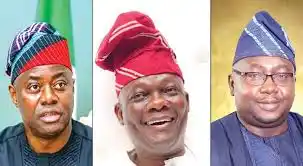SHOULD THERE BE A SPACE FOR RESEARCH ON YOUTH PARTICIPATION IN NIGERIA POLITICS?: A SYNOPSIS
By Azeem Salako
It is the first day that ends the last month of the year. However, I have some questions to ask and I respectfully hope that my inquisition would receive your good attention.
So each time I visit offices of political science teachers, I see on their tables, shelves, and boxes quite a number of project reports on youth participation in Nigeria politics. These reports are not foreclosed to undergraduate students, in fact, in my recent visit to a Nigerian (state) university this year, i witnessed a post field doctoral presentation on youths participation in Nigeria politics. I was dumbfounded especially noticing that it was a research borne of same lamentation about the insignificant numbers of youths participating actively in Nigeria’s mainstream politics.
To be clear, i have no problem with a thought that ties Nigeria’s developmental crisis with poor participation of her youths in politics. My concern however is the definition of that qualifier, “poverty”, which seeks to describe the situation of the youths in the political process.
And for me and without turning the opinion on its head, i do not reason the poverty in association with numerical strength as most discourse bandied it about. Rather, the poverty seemed more evident and manifesting with respect to quality, capacity, and sincerity of purpose, which serves as the tripod goods that drives the wheels of governance deliverables.
Therefore the below questions become fundamental to my inquisition;
(a) What is the hope of the Nigeria state in the hands of politically povertilized youths.
(b) what is responsible for youth political poverty.
(c) And how can political povertilization amongst youths be curbed in order to give chances, and bolster opportunities for emerging Nigerian youths.
(d) Aside the fact that there is no empirical and logical relationship between age and good governance, what is the assurance (especially in the midst of a prevalent moral derilection and cultural laxity amongst the youths) that the proliferation of youths in mainstream politics will better off the misgovernance under the gerontocrats according to which, as I want to understand, the quest for increasing youth political involvement rest on.
These are my concerns, the questions I humbly want answers to, and questions I equally sought should be the focus of any contemporary research on youth participation, and not “youth entitlement” or turning youth as an identity seeking for justice, and equity.
NB – The issue is framed under two major operational terms; political participation, and poverty of political participation among youths.
(i) political participation – this imply the active involvement of youths at the gladiatorial level of mainstream politics. The activities at these level includes all elective, and appointive political offices, including political parties. The operational use of the term emphasize on mainstream politics, thus, it does not include youth groups, such as Nigeria youths parliaments, Nigeria youths council, Students Union bodies etc. The party politics also centered on major political parties holding significant numbers of elective political offices with a manifesting evidence of significant political structure across it’s jurisdiction.
(ii) poor political participation – this is operationally defined as the lack of quality, capacity, and sincerity of purpose preconditioned for the provision of governance deliverables. This study in other words does not reason poor political participation among youths as low numerical strength of the youths who are actively involved in mainstream politics. It does not measure political participation in terms of quantity, but quality
Azeem Salako’s research and academic interest is Public Sphere and Citizenship in Africa. He can be reached via casoglobe.edu@gmail.com




